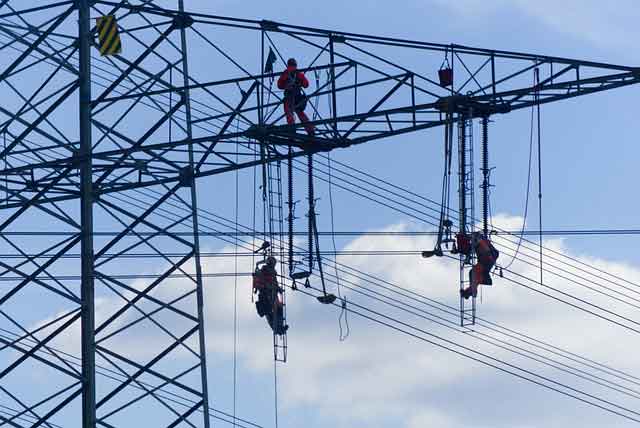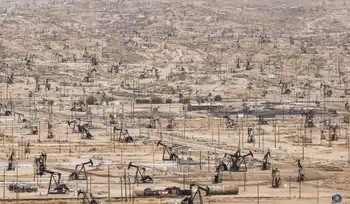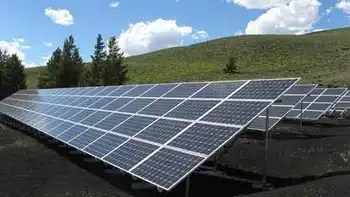Power deregulation cost consumers, analysts
Calgary, AB, -- -
Calgary, AB, -- Power prices in Alberta will continue to sting in 2001 -- and for years to come, according to a recent report written by Optimum Energy Management. In addition, the report claims that deregulation of the Alberta electricity industry has cost consumers $3 billion more than if the provincial industry had remained regulated.
The report predicts electricity will cost between 7.5 cents to 13.2 cents per kWh in 2001. That compares to an average spot price in 2000 of 13.3 cents (or $133.22 per mWh), 4.3 cents in 1999 and 1.4 cents in 1996.
"This is forecasting," noted Optimum vice-president Duane Reid-Carlson in a recent interview. "It's an art, not a science."
But the result is grim, added Dale Hildebrand, another Optimum executive: "It is no longer clear that the prices consumers will pay are going to be lower as a result of deregulation."
It didn't have to be like this, the report suggests. The slow move to deregulation began in 1996. If the industry had remained regulated, there would have been a steady rise in demand and price, and probably a couple of new regulated, coal-fired generators to meet the need.
But the province's deregulation process created uncertainty and stopped any significant new developments for five years.
"It is anticipated that consumers have lost as much as $3 billion of value from Alberta's previously regulated generation as a result of electricity industry restructuring," the company said in a statement.
Current high spot prices have prompted companies to announce new projects totalling over 4,200 megawatts by 2006, including Epcor's plan to build a 400 MW plant at Lake Wabamun.
TransAlta has plans to build a 900 MW plant in the same area.
But the province's needs in that time frame will amount to 2,000 to 3,000 new MW, not 4,200. "It is not likely that all projects will be built as announced," Reid-Carlson said.
In fact, less than one-third of the badly needed power plants proposed for Alberta have a realistic chance of being built, he said. About 4,250 megawatts of new generation -- roughly half of the province's existing capacity -- have been proposed for construction by the end of 2006.
But it is unlikely many of those will ever become a reality, according to the Optimum Energy Management report.
The Calgary-based consulting firm gives just 1,300 MW worth of new power plants a better than 80-per-cent chance of being built. The plans that are most likely to be abandoned before construction begins are proposals for natural gas plants, said Reid-Carlson.
"As the price of natural gas climbs, coal becomes more attractive," he said. "But it's first-come, first-serve. Whoever gets their plant built first will have an effect on what other plants get built."
The new plants are needed to ease Alberta's power supply crunch, which has been worsened by rapidly growing demand for electricity. But high natural gas prices threaten to turn gas-fired plants into inefficient money burners, compared to coal-burning generators.
Natural gas prices are expected to remain high for the next five years, say analysts.
The proposals for new plants include about 1,700 MW of coal-fired electricity and 2,230 MW of gas-fired power.
Despite skepticism from industry watchers, the provincial government is confident most of those generators will be built.
Proponents of natural-gas fired plants, such as Virginia-based AES Corp., which is building a gas-fired plant near Calgary, have touted the fuel as a cleaner way of generating electricity compared to coal. The plants are also cheaper to build.
But Epcor, one of the province's largest natural gas and electricity retailers said it is also putting its faith in coal.
Plans are under way for a massive 400 MW expansion of Epcor's coal-fired Genesee station.
"One should not be surprised if a lot of those (gas-fired) plants are not built," Epcor president Don Lowry recently told industrial consumers in Calgary.
"It's a very turbulent time for natural gas . . . and many of those plants aren't going to be able to compete with the price of coal, he said.
Related News

B.C. Diverting Critical Minerals, Energy from U.S
VANCOUVER - British Columbia Premier David Eby has raised concerns that U.S. tariffs on Canadian softwood lumber are prompting the province to redirect its critical minerals and energy resources away from the United States. In a recent interview, Eby emphasized the broader implications of these tariffs, suggesting they could undermine North American energy security and economic collaboration.
Since 2017, the U.S. Department of Commerce has imposed tariffs on Canadian softwood lumber imports, alleging that Canadian producers benefit from unfair subsidies. These duties have been a persistent source of tension between the two nations, significantly impacting British Columbia's forestry sector—a cornerstone…




